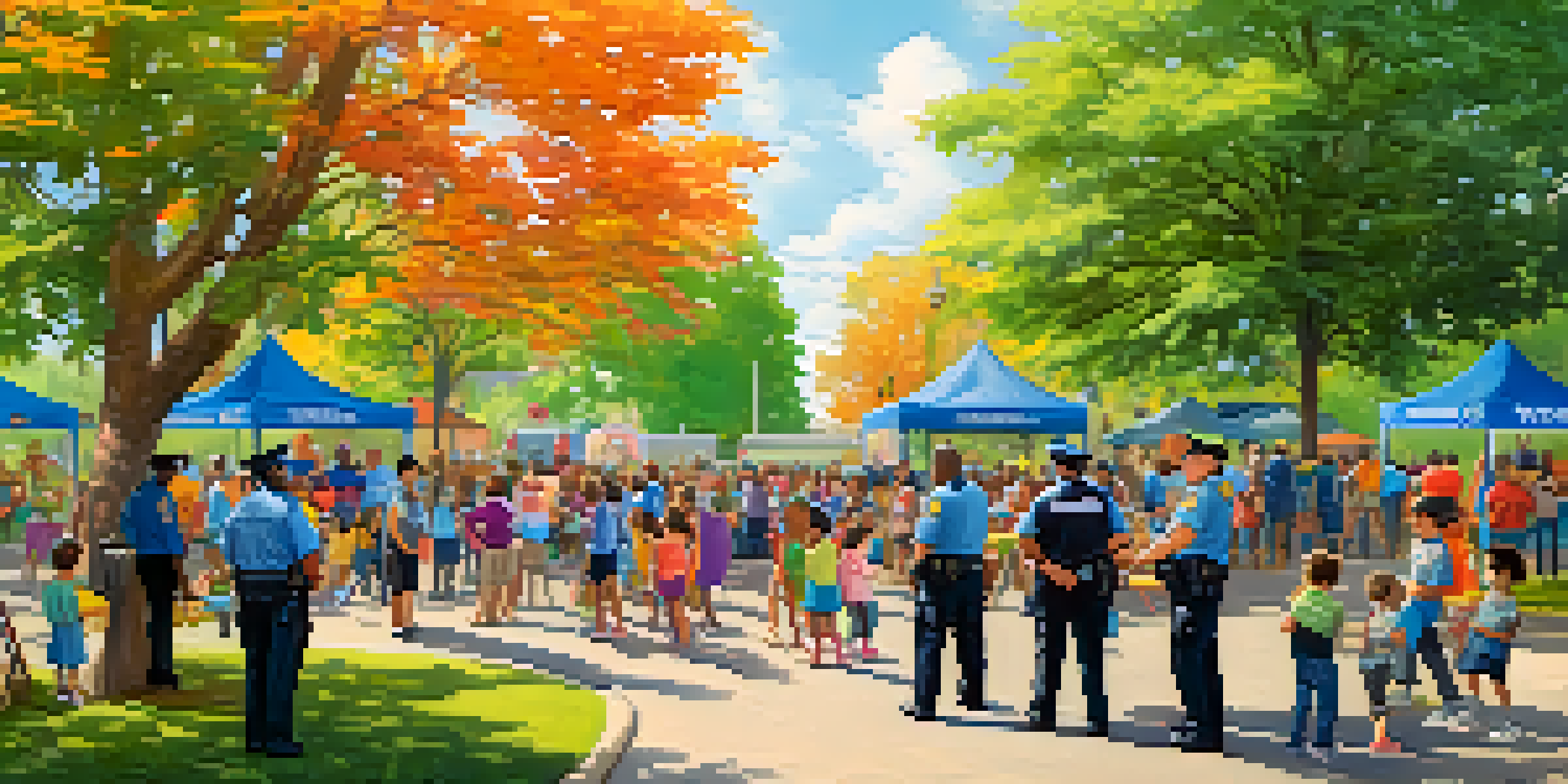Community Engagement Strategies for Effective Policing

Understanding Community Engagement in Policing
Community engagement in policing refers to the collaborative efforts between law enforcement and the community to enhance public safety. This relationship is essential for building trust and ensuring that police actions align with community needs. By actively involving community members, police can better understand local issues and tailor their responses accordingly.
Building Trust Through Transparency
Transparency is a cornerstone of effective community engagement. When police share information about their operations and decision-making processes, it fosters trust and accountability. For example, regular updates on crime statistics and community meetings can empower residents and make them feel included in the policing process.
Trust Through Transparency
Sharing information and engaging with the community fosters trust and accountability in policing.
Leveraging Social Media for Engagement
In today's digital age, social media serves as a powerful tool for police departments to connect with the community. Platforms like Facebook and Twitter allow officers to share important updates and engage in conversations with residents. By utilizing these channels, police can break down barriers and create a more approachable image.
Creating Community Advisory Boards
Community advisory boards provide a structured way for residents to voice their concerns and suggest improvements to local policing. These boards can help bridge the gap between law enforcement and the community, fostering a sense of collaboration. By involving diverse voices, police can gain valuable insights into community needs.
Community Policing Initiatives
Proactive programs like neighborhood watch enhance relationships between police and residents.
Promoting Community Policing Initiatives
Community policing initiatives focus on proactive measures to prevent crime rather than merely responding to it. Programs such as neighborhood watch or youth mentorship can significantly enhance community-police relations. When officers engage with residents in positive, non-enforcement contexts, it helps to strengthen relationships and build mutual respect.
Organizing Community Events
Organizing community events, such as fun runs or educational workshops, can bring police and residents together in a relaxed setting. These gatherings provide opportunities for informal interactions, allowing citizens to see officers as approachable individuals rather than authority figures. Such events can significantly improve community relations and foster goodwill.
Cultural Competency Training
Training officers in cultural understanding leads to better communication and empathy in diverse communities.
Training Officers in Cultural Competency
Cultural competency training equips officers with the skills to understand and respect the diverse backgrounds of the communities they serve. By learning about different cultures and experiences, officers can approach situations with greater empathy. This understanding can lead to more effective communication and fewer misunderstandings.
Measuring the Impact of Engagement Strategies
It's essential for police departments to measure the effectiveness of their community engagement strategies. Surveys, feedback sessions, and crime statistics can provide insights into how well these strategies are working. By analyzing this data, law enforcement can refine their approaches and continually improve their relationship with the community.